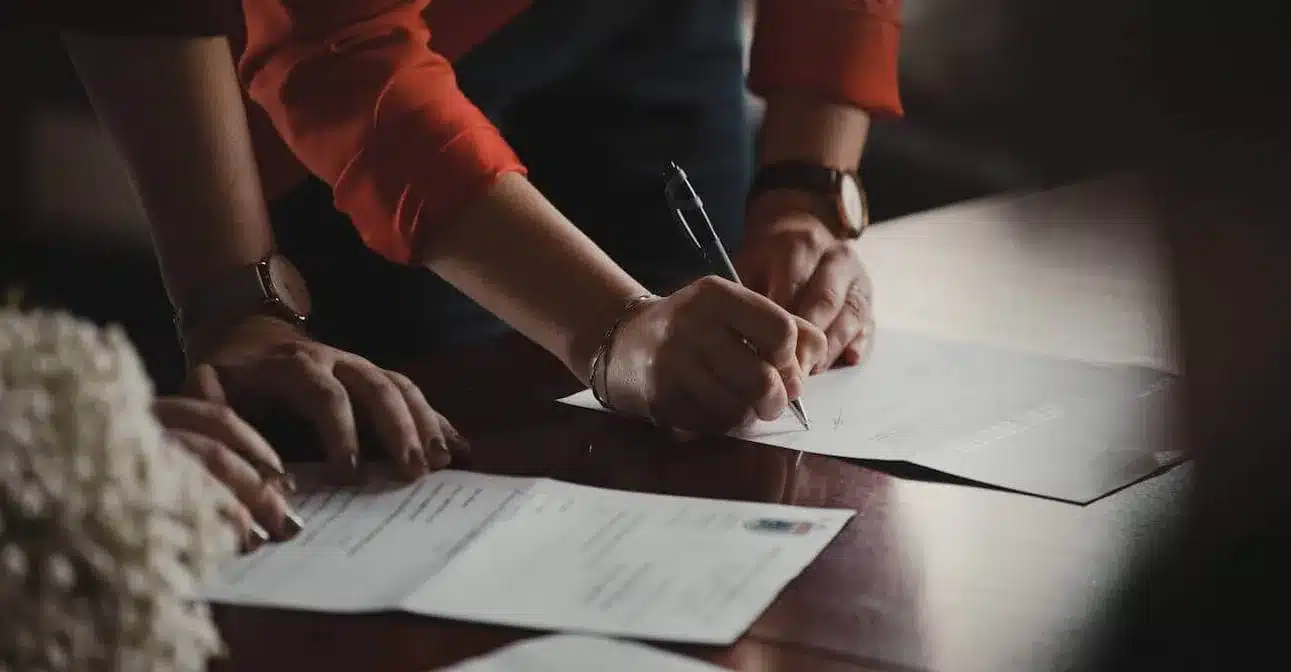
What Does “Duly Notarized” Mean and How to Recognize Notarized Copies
When you see the phrase “duly notarized” on a legal form, government application, or contract, it means more than just “signed by a notary.” It indicates that a notarial act was performed correctly and in compliance with state law. For many official purposes — from court filings to international transactions — having a properly notarized copy of a document can make the difference between acceptance and rejection.
At One Source Process, we specialize in helping individuals and businesses understand these requirements and prepare documents that meet both U.S. and international standards.
Understanding the Term “Duly Notarized”
Definition of “Duly Notarized” in Legal Context
The word “duly” means “properly” or “in accordance with the law.” Therefore, “duly notarized” refers to a document that has been notarized by a licensed notary public following all legal procedures. This includes confirming the signer’s identity, witnessing the signature, and applying the notary’s seal.
Why the Phrase Appears in Legal Documents
Agencies and courts often require documents to be “duly notarized” to ensure they were handled correctly. It is a safeguard against fraud and unauthorized certifications. You’ll find the phrase in government forms, contracts, loan agreements, and even in immigration paperwork. For example, the U.S. Citizenship and Immigration Services (USCIS) frequently requires notarized copies of identification documents.
What Is a Notarized Copy?
How Notaries Certify Copies of Documents
A notarized copy is a photocopy of a document that a notary public certifies as a true and correct reproduction of the original. The notary compares the copy with the original document, then attaches a notarial certificate confirming its authenticity.
Notarized Copy vs. Certified Copy
Not all notarized copies are the same as certified copies. In many states, only certain government agencies can issue certified copies of documents such as birth or death certificates. A notary can provide a notarized copy of IDs, passports, or other documents, but cannot replace an official record from a vital records office. Always check your state’s official notary laws before proceeding.
How to Recognize a Properly Notarized Copy
A valid notarized copy will always contain specific visible elements. These help confirm that the notarial act was performed correctly.
Look for these features:
- Notary’s stamp or embossed seal
- Notary’s signature
- Date of notarization
- Wording of a notarial certificate, often stating “true and correct copy”
- Commission expiration date
Watch out for red flags:
- Missing seal or incomplete certificate
- Blurry or unclear photocopies
- Handwritten statements without an official stamp
- Expired notary commission
Expert Note: “A properly notarized copy should leave no doubt that the notary verified the document’s authenticity. If any required element is missing, the notarization may be rejected.”
When You May Need a Duly Notarized Copy
Immigration and Visa Applications
Applicants for U.S. visas, green cards, or citizenship may be asked to provide notarized copies of passports, driver’s licenses, or affidavits. This ensures that government agencies receive verified, trustworthy documents.
Court Filings, Business, and Real Estate Transactions
Courts often require notarized copies of IDs or contracts as evidence. Banks and title companies may also ask for duly notarized copies during real estate closings or when opening accounts for international clients.
If your notarized documents are going abroad, they may require additional steps such as an apostille or full embassy authentication. Our team assists with both apostilles and legalization services, ensuring your documents are valid worldwide.
Are Copies of Notarized Documents Always Valid?
Not every notarized copy is automatically accepted. Acceptance depends on the institution or country where you submit it.
- In the U.S., most agencies accept notarized copies of common documents like IDs, passports, or contracts.
- Some institutions, however, insist on certified copies from the issuing agency (for example, birth certificates).
- For international use, many countries require notarized documents to also be authenticated with an apostille or legalization to ensure validity.
You can check whether your destination country is part of the Hague Apostille Convention on the U.S. Department of State website.
Common Problems with Notarized Copies
Even small mistakes can make a notarized copy invalid. Some of the most frequent issues include:
- Photocopies that cut off parts of the ID or page
- Notary forgetting to include their seal or commission number
- Using outdated or incorrect notarial wording
- Attempting to notarize documents that cannot legally be copied (e.g., vital records in some states)
To avoid these problems, always work with an experienced notary service provider.
Best Practices for Obtaining a Duly Notarized Copy
Preparation Tips
- Bring both the original document and the photocopy
- Ensure the copy is clear, legible, and complete
- Confirm in advance that your state allows notaries to certify copies of that type of document
After the Notarization
- Double-check the seal, signature, and certificate wording
- Ask if additional authentication (apostille or legalization) is required for your purpose
- Keep a digital scan of the notarized document for your records
By following these best practices, you can be confident your documents will be accepted the first time.
Frequently Asked Questions
Q1: What does “duly notarized” mean in plain English?
It means a document has been properly notarized by a licensed notary public, following all legal requirements.
Q2: Is a copy of a notarized document acceptable?
It depends on the agency. Some accept it, others require the original notarized copy.
Q3: Can I scan and email a notarized document?
Yes, but confirm if the recipient will accept a scanned copy or requires the original with seal.
Q4: What is the difference between notarized and certified copies?
A notarized copy is certified by a notary as a true copy, while a certified copy usually comes directly from the issuing authority.
Q5: Are copies of notarized documents valid internationally?
Not on their own. Most foreign countries require an apostille or embassy legalization in addition to notarization.
Final Thoughts
Understanding the meaning of “duly notarized” helps you avoid costly mistakes with your important paperwork. Whether you need notarized copies for use in the U.S. or abroad, our team at One Source Process ensures your documents are prepared correctly and accepted wherever they are submitted.
Contact us today to get started with your notarization and authentication needs.




